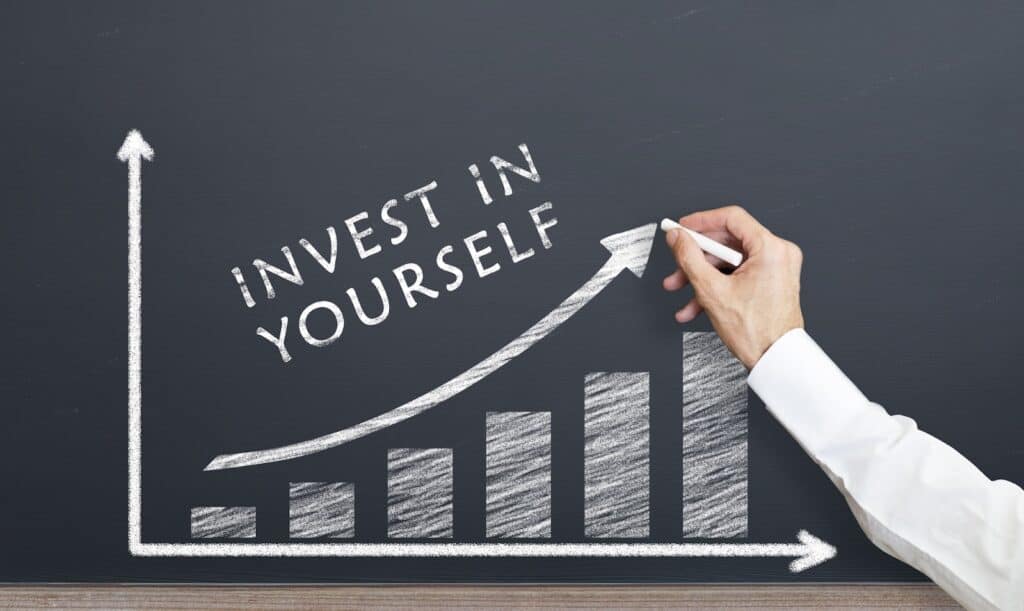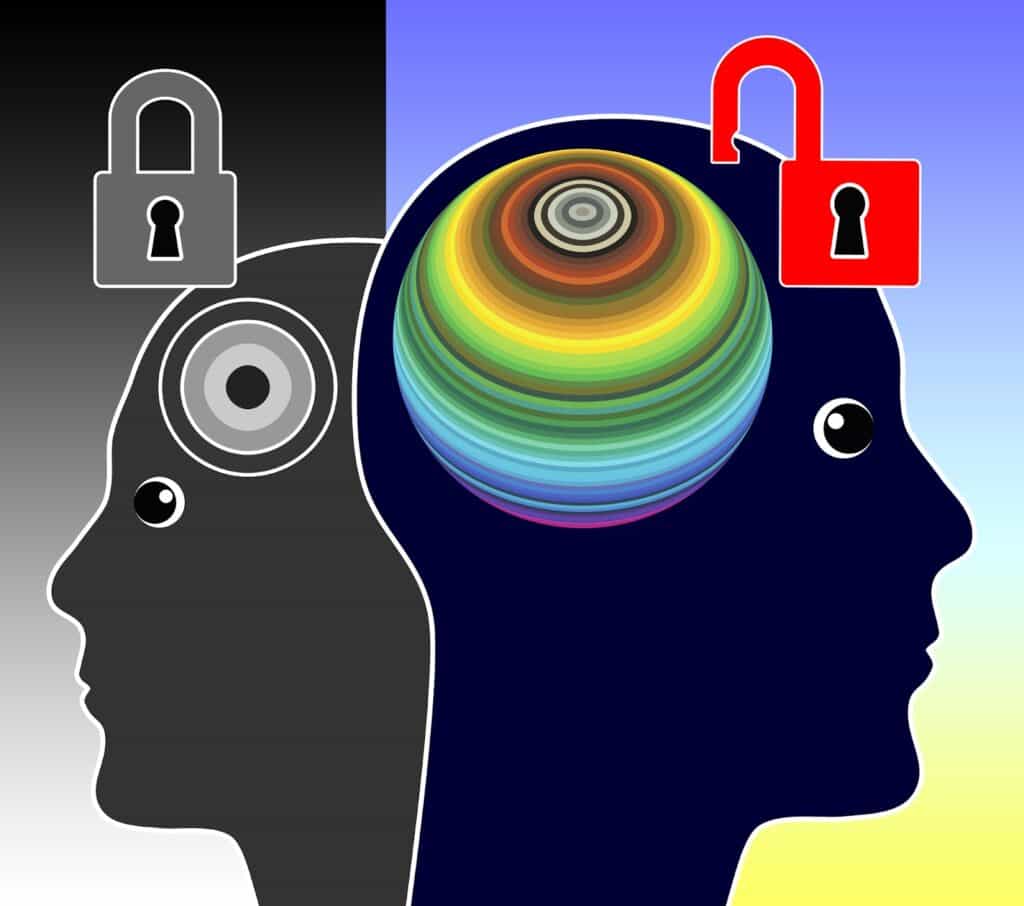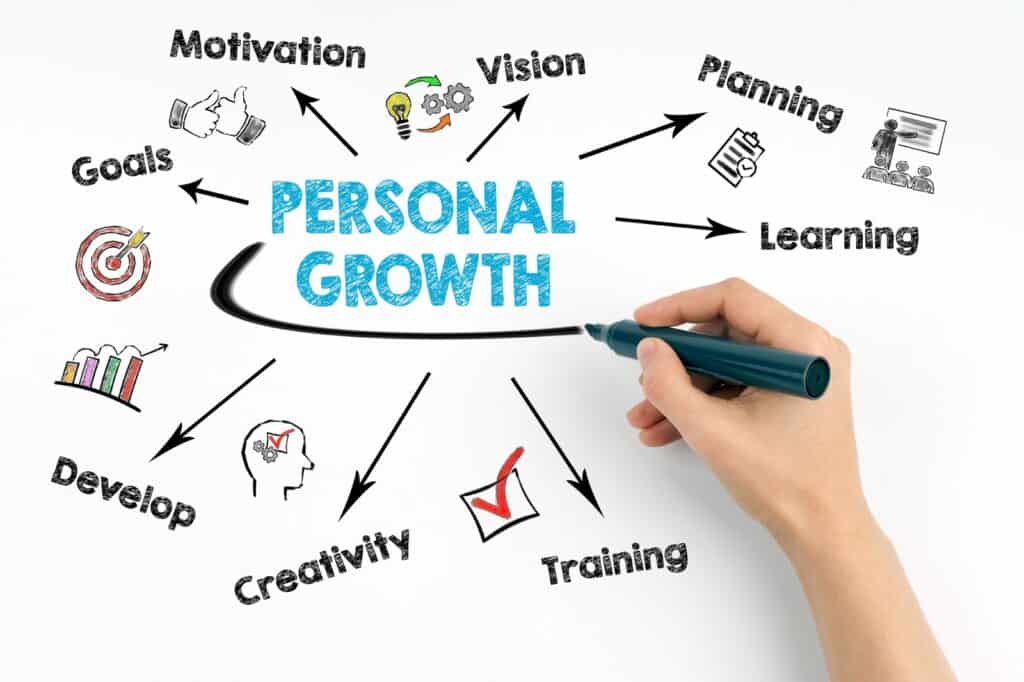
Hard work is something that’s often associated with success and getting things done. It’s something that you can always count on when it comes to putting in the effort required to get things done. It’s a virtue that many people praise and respect.
However, many people only think of hard work as something that applies to their jobs or careers. They don’t realize that they can apply it to themselves as well—in other words, you can work hard on yourself just like any other aspect of your life.
Jim Rohn said it best when he said “Work harder on yourself than you do on your job.” This is because the person you are is much more important than the work that you do.
But what does investing in yourself mean? And why is it important to understand how to work harder on yourself? Before answering these questions, let’s first go over what it means to “work hard on yourself”.
What does it mean to work hard on yourself?
Working hard on yourself means that you are dedicated to improving your life and becoming a better person, which is essentially personal development and self-improvement. You are constantly working to increase your knowledge and skills, as well as improve your character, habits, and practices that will help you become the best version of yourself.
This means being honest with yourself and recognizing your flaws and weaknesses, and then making a conscious effort to address them. It often requires self-reflection, self-discipline, and a willingness to step outside of your comfort zone.
Working on yourself can include anything from getting in shape to learning new skills or hobbies. It doesn’t matter what it is—it just matters that you are putting in the effort to make yourself better.
Self-development gives you a sense of self-worth, helps you become better at everything else in your life, and it gives you an advantage over those who don’t put in the effort to hone their skills and develop themselves.
The journey of personal development is not always easy (it’s not supposed to be), but it’s incredibly rewarding. And the best part is that anyone can do it – all it takes is a willingness to try and a commitment to self-improvement.
So, how do you go about working hard on yourself?
How do I work hard on myself?

The best way to work on yourself is to first identify what it is that you want to improve about yourself. This can be a big task since there are so many things we wish we could change about ourselves. The key here is not to get overwhelmed by the prospect of working on yourself but rather keep it simple and start small.
Below are some key guidelines to help you identify areas of improvement and work hard on yourself.
Set measurable goals aligned with your values.
This means deciding on clear targets that you can track and evaluate over time. You might want to improve your fitness, learn a new skill, or grow in your career. Whatever your goal, make sure it aligns with what you care about most.
Make sure your goals are achievable and realistic and celebrate your successes along the way. Remember, your goals should reflect your own values and priorities, not someone else’s. This will help you stay motivated and focused when the going gets tough.
Embrace challenges as opportunities to grow.

This means viewing challenges as opportunities to learn and improve, rather than as obstacles to avoid. When you approach challenges with a growth mindset, you’re more likely to embrace new experiences and take risks. This can lead to personal and professional growth, as you develop new skills and learn from your mistakes.
To cultivate a growth mindset, focus on the process of learning rather than just the outcome, and be willing to put in effort and practice to improve. Remember that failure is a natural part of the learning process, and use setbacks as opportunities to reflect and adjust your approach. With a growth mindset, you can take on new challenges and continue to grow and improve throughout your life.
Include self-reflection and skill development in daily routines.
This means setting aside time each day to think about your thoughts, feelings, and actions, as well as taking care of your physical and mental health. It also means dedicating time to learning new skills or improving existing ones. By doing this, you’ll be able to grow as a person and achieve your goals. So, make sure to schedule some “you” time every day!
Seek feedback for self-improvement.
These people can help identify areas where you can improve, which will allow you to focus on those areas and work hard to make progress. When seeking feedback, be open-minded and willing to listen to constructive criticism. This will help you grow and develop into the best version of yourself.
Keep in mind that feedback can be difficult to hear, but it can help you grow and develop in the long run. So, be open to receiving feedback and use it as an opportunity to learn and improve yourself.
Prioritize tasks and reduce distractions.
Eliminating distractions means getting rid of anything that takes your focus away from what you’re working on. By doing this, you can be more productive and accomplish more in less time.
Try making a to-do list and ranking items by importance, and then turn off your phone or other distracting devices while you work on each task. By managing your time effectively, you can increase productivity and achieve your goals more efficiently.
Cultivate supportive personal and professional relationships.
These individuals can encourage your personal and professional development. Building strong relationships with these people can help you stay motivated and reach your goals. Make an effort to connect with those who support and uplift you, and seek out opportunities to grow together.
Supportive individuals offer guidance, give you honest feedback, and challenge you to become better. By surrounding yourself with a supportive network, you can achieve your goals faster and more effectively. Remember, you don’t have to do everything alone. Having a community of people who want to see you succeed can make a world of difference.
Maintain discipline and accountability.
This means following through on your commitments and deadlines. When you commit to something, make sure you do everything you can to complete it on time. Hold yourself accountable for your actions and take responsibility for any mistakes you make.
By doing this, you’ll develop the habit of being reliable and dependable, and also develop a sense of self-respect and vital independence needed in fields like entrepreneurship. This will not only benefit your personal life but also your career.
Pursue continuous learning.
You can do this by reading books, taking courses, attending workshops, or participating in other learning opportunities. These activities will help you develop new perspectives, stay up-to-date on trends and best practices, and enhance your abilities.
By investing in your personal growth, you can improve your confidence, broaden your horizons, and achieve your goals. Remember, learning is a lifelong process, and every opportunity to learn is an opportunity to grow.
Focus on the improvement process, not just the outcomes.
It’s easy to get caught up in achieving your goals, but it’s the process that shapes you into the person you want to be. When you focus on the process of improvement rather than just the end result, you prioritize the steps you take to get to your goal.
This means that you are more likely to enjoy the journey and learn along the way, rather than just stressing about the end goal. Instead of just thinking about the end result, break it down into smaller steps that you can focus on achieving.
By concentrating on each small step, you can measure your progress and adjust your approach as necessary. Remember, the process is what ultimately leads to success, and it’s the small improvements made along the way that will help you reach your destination.
With a focus on the process, you’ll be able to enjoy the journey of self-improvement and create lasting change in your life.
What are the best habits and practices for working on yourself?

Although there are countless ways to improve yourself, there are also a few core habits that every person should be working on. These habits are important because they help you build the foundations of self-improvement that will allow you to progress further in your life.
If you want to improve yourself, here are some habits and practices you can adopt:
Start Each Day with a 10-minute Meditation
Meditation in the morning sets the tone for the day. It’s about creating a moment of calm, a clear mental space before the rush begins. Just 10 minutes can make a significant difference. Meditation helps in reducing stress, improving focus, and fostering a sense of peace. It’s not complex; you can start with simple breathing exercises or guided sessions available online.
- Benefits: Reduces anxiety, enhances focus, and promotes emotional health.
- How to Start: Use a meditation app, focus on breathing, and find a quiet place.
- Consistency is Key: Aim for a daily routine, even if it’s just for a few minutes.
Read One Chapter of a Non-Fiction Book Daily
Reading non-fiction daily enriches your knowledge and expands your perspective. It keeps you informed, improves your critical thinking, and enhances your vocabulary. Choose books that align with your interests or career goals. This habit doesn’t just impart knowledge; it’s a way to engage with new ideas and concepts.
- Selection: Choose topics that interest you or align with your goals.
- Retention: Take notes or highlight key points for future reference.
- Routine: Incorporate reading into your daily schedule, perhaps in the morning or before bed.
Journal Your Thoughts for 15 Minutes Nightly
Journaling each night is a powerful tool for self-reflection. It allows you to process the day’s events, clarify your thoughts, and set intentions for the following day. This practice can lead to greater self-awareness and stress relief. Use this time to express gratitude, work through challenges, or plan ahead.
- Method: Use a physical journal or digital app.
- Privacy: Ensure your journaling space is private and comfortable.
- Consistency: Make it a nightly ritual, perhaps as part of your bedtime routine.
Exercise for at Least 30 Minutes Daily
Daily exercise is crucial for both physical and mental health. It boosts energy, improves mood, and contributes to overall well-being. Find an activity you enjoy, whether it’s a brisk walk, a gym session, or a yoga class. The key is consistency and finding joy in movement.
- Variety: Mix different forms of exercise to keep it interesting.
- Tracking Progress: Use a fitness app or journal to monitor your activities.
- Enjoyment: Choose exercises that you find fun and engaging.
Set and Review Weekly Personal Goals
Setting weekly goals provides direction and motivation. It’s about breaking down larger objectives into manageable tasks. Reviewing these goals helps track progress and adjust as needed. This habit fosters a sense of accomplishment and keeps you aligned with your long-term aspirations.
- SMART Goals: Specific, Measurable, Achievable, Relevant, Time-bound.
- Review Process: Reflect on what worked and what didn’t, adjust goals accordingly.
- Visualization: Visualize achieving your goals to boost motivation.
Practice One New Skill Every Month
Learning a new skill each month keeps the brain active and engaged. It could be anything from a new language to a culinary skill. This practice not only adds to your skillset but also boosts confidence and keeps life interesting.
- Choice of Skill: Align it with personal interests or career development.
- Resources: Utilize online courses, local workshops, or self-teaching guides.
- Practice Time: Dedicate regular time each week to practice and improve.
Spend 20 Minutes in Nature Daily
Spending time in nature daily has numerous benefits. It’s a way to disconnect from the digital world and reconnect with the environment. This practice reduces stress, improves mood, and enhances creativity. Whether it’s a walk in the park, gardening, or simply sitting outdoors, it’s a vital addition to your routine.
- Activities: Walking, hiking, gardening, or just sitting and observing.
- Mindfulness: Be present in the moment and observe the natural surroundings.
- Accessibility: Find a space that is easily accessible to you.
Limit Social Media to 30 Minutes Daily
Limiting social media use is about taking control of your time and attention. Excessive use can lead to decreased productivity and a sense of dissatisfaction. Set a daily limit and stick to it. Use the time gained for more fulfilling activities.
- Time Management: Use apps to track and limit your usage.
- Alternative Activities: Replace social media time with reading, hobbies, or socializing in person.
- Awareness: Be mindful of how social media usage affects your mood and productivity.
Reflect on Three Daily Gratitudes
Reflecting on what you’re grateful for fosters positivity and appreciation for life’s blessings. It can be simple things like a good cup of coffee or a helpful colleague. This habit shifts your focus from what’s lacking to what’s abundant.
- Consistency: Make it a daily habit, possibly during your morning or evening routine.
- Recording: Write them down in a journal or share them with a loved one.
- Mindset Shift: Focus on the positives, however small.
Engage in Deep Work for Two Hours Daily
Dedicated time for deep work enhances productivity and creativity. It means focusing on tasks without distraction. This could be work-related projects, creative endeavors, or learning. Two hours of concentrated effort can lead to significant progress over time.
- Planning: Schedule this time during your most productive hours.
- Environment: Create a distraction-free workspace.
- Breaks: Incorporate short breaks to maintain focus and avoid burnout.
Remember that working on yourself is a lifelong journey, so be patient with yourself and take small yet constant steps. You will never be perfect, but you can always get better.
Conclusion
So, if you’re looking to work harder on yourself, the key is to prioritize your self-improvement and make it a daily habit. Remember, working on yourself is not a one-time event, but a lifelong journey. It’s about being intentional and consistent with your efforts to become the best version of yourself.
If there’s one thing to take away from this article, it’s that investing in yourself is the best investment you can make. By focusing on your personal growth and development, you’ll be able to improve your relationships, your career, and your overall quality of life.
So, whether it’s learning new skills, building healthy habits, or challenging yourself to step outside of your comfort zone, make sure to always put in the effort to work harder on yourself. The rewards will be well worth it.









